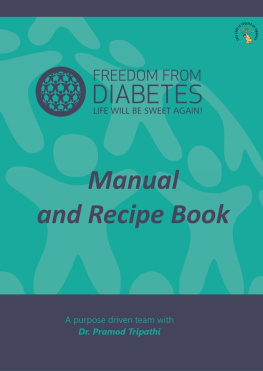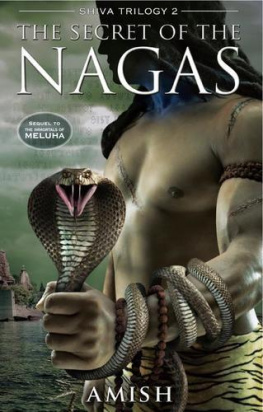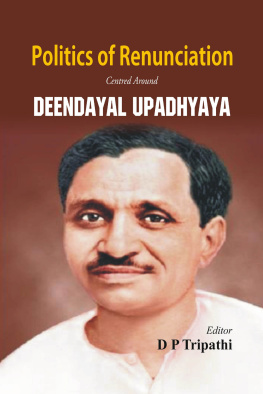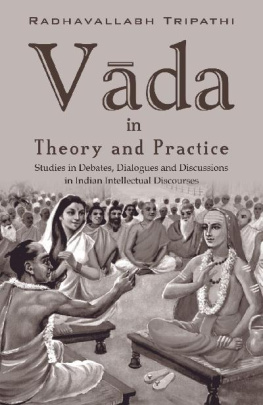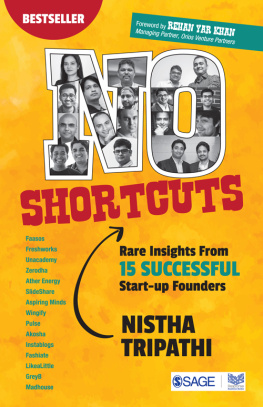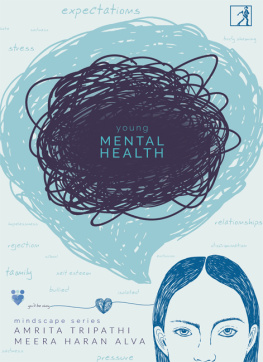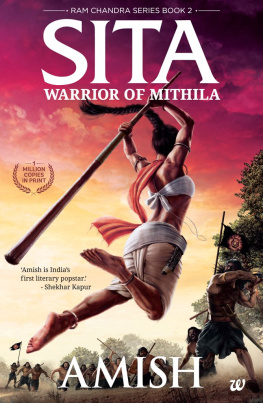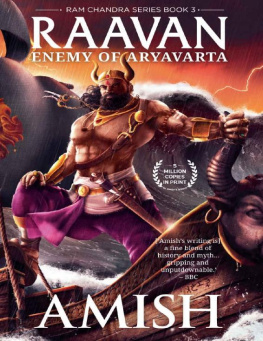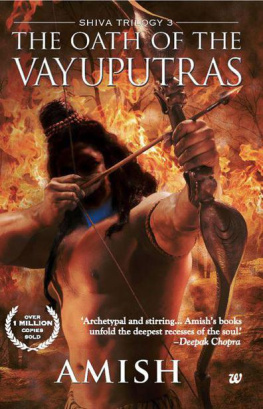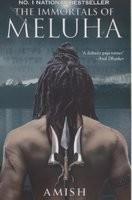Suryakant Tripathi Nirala - A Life Misspent
Here you can read online Suryakant Tripathi Nirala - A Life Misspent full text of the book (entire story) in english for free. Download pdf and epub, get meaning, cover and reviews about this ebook. year: 2018, publisher: HarperCollins Publishers India, genre: Detective and thriller. Description of the work, (preface) as well as reviews are available. Best literature library LitArk.com created for fans of good reading and offers a wide selection of genres:
Romance novel
Science fiction
Adventure
Detective
Science
History
Home and family
Prose
Art
Politics
Computer
Non-fiction
Religion
Business
Children
Humor
Choose a favorite category and find really read worthwhile books. Enjoy immersion in the world of imagination, feel the emotions of the characters or learn something new for yourself, make an fascinating discovery.

- Book:A Life Misspent
- Author:
- Publisher:HarperCollins Publishers India
- Genre:
- Year:2018
- Rating:3 / 5
- Favourites:Add to favourites
- Your mark:
- 60
- 1
- 2
- 3
- 4
- 5
A Life Misspent: summary, description and annotation
We offer to read an annotation, description, summary or preface (depends on what the author of the book "A Life Misspent" wrote himself). If you haven't found the necessary information about the book — write in the comments, we will try to find it.
A Life Misspent — read online for free the complete book (whole text) full work
Below is the text of the book, divided by pages. System saving the place of the last page read, allows you to conveniently read the book "A Life Misspent" online for free, without having to search again every time where you left off. Put a bookmark, and you can go to the page where you finished reading at any time.
Font size:
Interval:
Bookmark:
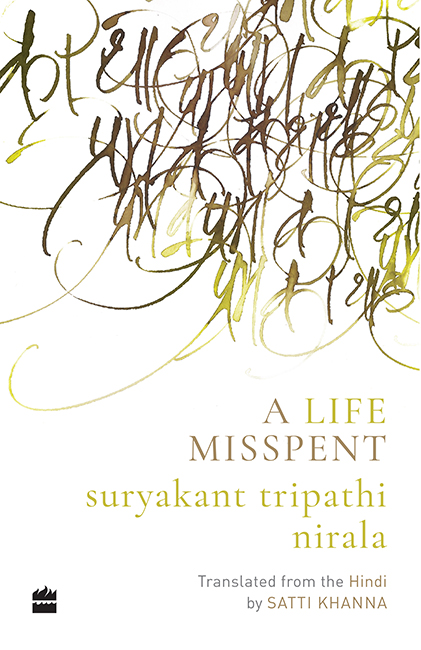
A LIFE MISSPENT
SURYAKANT TRIPATHI NIRALA
Translated from the Hindi by
Satti Khanna

Contents
I could not find a worthy person among the eminences of Hindi letters to whom this book could be dedicated. Eminences who possessed individual qualities similar to Kullis seemed inadequate in comparison to the sum of Kullis character. Therefore, I am deferring the ceremony of dedication.
Nirala
Kulli Bhaat, who was formally known as Pandit Patvaridin Bhatt, was my friend. This little book provides an account of his life. It also happens to provide an account of my life, more openly perhaps than the orthodox would like. But genuine literary people enjoy novelty. They may forgive the inclusion of autobiography in my tale if the telling has quality. It is to those who are open to the quality of things that I am most devoted.
Kulli Bhaat was human in a way that other human beings will honour. When I spoke to Pandit Devidatta Shukla, editor of Saraswati, about Kulli, Pandit Shukla said Kulli was his older brothers friend. Let the reader understand by this statement that Pandit Shukla esteemed Kulli as he would his elder brother.
The tone of the book is comic. It would be good if people did not take offence at it and thereby reveal their inadequacy as readers.
Nirala
Lucknow
10.5.1939
For a long time I had been unable to fulfill the wish that I should write a biography. There was no suitable person to write about, no leader of men. I looked everywhere. I tackled histories of the great ones. Book after book enumerated their ideals. I read biographies written by the great ones themselves. It became clear to me why India is an enslaved nation. Our heroes compensate for their weaknesses with grand statements. The blaze of light around what they say hides how they live.
I read this somewhere. A filmgoer saw a film star scale the wall of a house in a movie. The viewer, too, caught in the grip of passion, raced up the wall to his lovers house. He fell off and broke his back. I was glad. Many poets accomplish great deeds pen in hand. They put their lives in danger. They scale the seventh heaven of literary mastery. They father socialist revolutions.
The poet Tulsidas wrote:
If I list my faults the tale grows long,
If hints will serve I can carry on.
Tulsidas believed in a poetic style suitable for ordinary, thoughtful persons. He said nothing about flourishes suitable for heroes. Literary critics are quick to remind us that Tulsidas was no hero; he was an ordinary man. Be that as it may, we know that Tulsidas retained his manly virtues from the time he came of age to the time of his demise a century later.
The poet Bhagvati Charan said to meand poet Ramnaresh Tripathi knows this to be based on the latest researchthat Tulsidas died of heatstroke. What made it so hot for him? Was it the dancing girl Ratnavali? And was heat the cause of the pain in his left arm when he composed the Hanuman Bahuk? I am weak on history, but I do know that Tulsidas was a man, not a hero. Whereas Emperor Akbar was a hero. He started the Din-i-Ilahi faith. He married a woman from each of the religions practised in his empire. He gathered a large following.
My great-great grandfathers great-great grandfather, Raja Birbal Tripathi, was a follower of Emperor Akbar. Birbal married his daughter into the Vajpeyi priestly clan. Since then the Vajpeyis too have become capable of greatness. Kanyakubja descendents like myself, of course, benefitted directly from grandfather tripled.
In any case, just when I was hunting for a worthy subject, Kulli Bhaat died.
Kulli Bhaat was not a public figure whose image could be managed. Only one person would have understood Kulli Bhaats true significance and that person is no longer alive. I am speaking of Gorky. But Gorky too paid more attention to the figure a person cut than the substance of a persons life. He was an ideologue, a debater. Is there anyone in the world of Hindi letters who can judge such things? I hear a loud No.
I may write a biography of interest to the wide Hindi-speaking world, but Kulli Bhaat himself lived in the provinces. The district of Rae Bareli was all he knew of land. In his declining days, he did travel once to the town of Ayodhya like a sailor voyaging across seas. The rest of his life he spent in the area around his native town of Dalmau. Through Kulli Bhaat I understood how Kabir could stand looking at ditchwater and imagine the seven seas.
Kulli never met any celebrity whose fame could rub off on him. The exception was Pandit Devidatta Shukla, editor of Saraswati. I was the one who informed Kulli that the man he knew was a famous editor. By then Kulli had only six months left to live.
We were friends in elementary school, Kulli said. Really, is he somebody important?
I smiled. Your friend from elementary school edits the periodical Pandit Mahavir Prasad Dwivedi used to edit.
Kulli seemed sceptical; he must have been a lot bigger than his friend in elementary school. Besides, Kulli was the one who introduced Shuklaji to Baiswari poetry. The relationship between them would have been Kulli guru and Shuklaji disciple. It was Kulli who had introduced me to Baiswari poets as well, to Narhari, Harinath, Thakur, Bhuvan and many others. I was overwhelmed by their poetic power. How could I count myself a poet compared to them? Kulli may not have known how low I ranked myself. To give him some sense of Shuklajis stature I said, You think highly of me, but I am not fit to lace Shuklajis shoes.
Kulli was pleased at my words. He began to speak as an elder brother might or as Shuklaji himself might speak. Practice makes perfect. Which year was it when you came to take your wife home for the first time? A look of timidity crossed his face, whose meaning I could not understand then, but which came to me in a flash now. Images of my first meeting with Kulli twenty-five years ago passed before my eyes. Let me begin with that first meeting.
I had crossed the age of sixteen, as good as reached the end of my life according to J. P. Shrivastava. Not J. P. Shrivastava alone, but all our neighbours in the village thought the same. I remember Pandit Ramgulam speaking to my father: His voice has cracked. Theres moustache on his lip. Hair has sprouted under his armpits. Its time to perform the bride-fetching ceremony and bring his wife home. Gets into fights, too, I hear.
Yes, my father said and lapsed into thought.
In the same way, when we went to fetch my brideshe was thirteenthere was a puja going on knotting us together symbolicallyI dont think it was a puja to the god of love her grandmother said to her mother, Our daughter is of age. The son-in-law is of age. If they have come to take her away, let her go.
So we brought my bride home.
But the plague was raging in our village. What were we to do? The custom was to abandon ones house during the plague and encamp in orchards. The day we travelled from Bengal was the day villagers were abandoning their houses. Before we left for my in-laws, my father had two bamboo huts constructed under a mahua tree in our orchard.
It was the month of June. I had never encountered Uttar Pradeshs scorching summer before. When we reached our village we were assigned one of the two huts. The door was shut upon us. Things I had never dreamed of became natural at the mere touch of my wife. I can assure young people that no maturingnot even what greybeards acquire over decadesgoes as deep as this maturing.
Font size:
Interval:
Bookmark:
Similar books «A Life Misspent»
Look at similar books to A Life Misspent. We have selected literature similar in name and meaning in the hope of providing readers with more options to find new, interesting, not yet read works.
Discussion, reviews of the book A Life Misspent and just readers' own opinions. Leave your comments, write what you think about the work, its meaning or the main characters. Specify what exactly you liked and what you didn't like, and why you think so.

